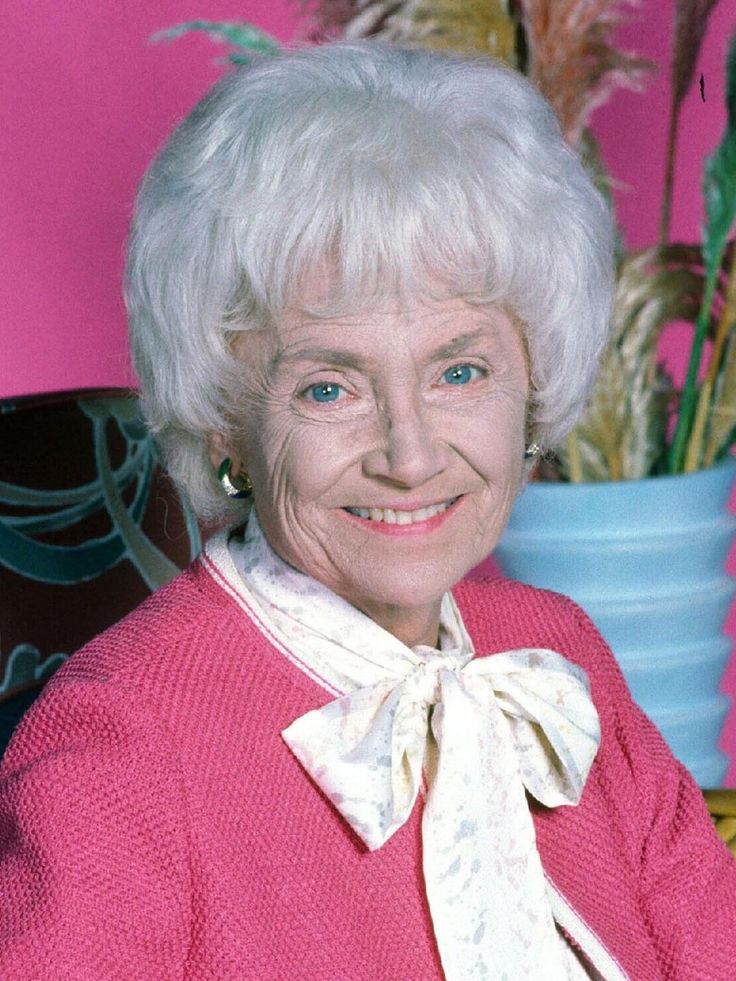Estelle Getty, a beloved actress known for her iconic role as Sophia Petrillo on "The Golden Girls," faced many challenges throughout her life, including a battle with dementia. This condition not only affects the individual but also impacts family members and loved ones, making it essential to understand its implications. In this article, we will delve into Estelle Getty's life, her struggle with dementia, and the broader implications of this condition on aging individuals.
As we explore the nuances of dementia, it’s crucial to highlight the importance of awareness and compassion towards those affected by this condition. Understanding the signs, symptoms, and treatment options can aid families in better supporting their loved ones. This article aims to provide a comprehensive overview of Estelle Getty's experience with dementia while also shedding light on the implications of this disease.
In addition to discussing Estelle Getty's life and career, we will provide insights into dementia itself, including its types, symptoms, and the impact it has on individuals and their families. By the end of this article, readers will have a well-rounded understanding of dementia through the lens of Estelle Getty’s experiences.
Table of Contents
- Biography of Estelle Getty
- Personal Data and Biodata
- Understanding Dementia: An Overview
- Types of Dementia
- Common Symptoms and Signs of Dementia
- The Impact of Dementia on Families
- Support and Care for Those with Dementia
- Conclusion
Biography of Estelle Getty
Estelle Getty was born on July 25, 1923, in New York City. She was an accomplished actress, best known for her role as the feisty and witty Sophia Petrillo on the television sitcom "The Golden Girls." Her career spanned several decades, and she earned critical acclaim for her performances on both stage and screen.
Before achieving fame on television, Getty had a successful career in theater and appeared in various productions. Her portrayal of Sophia won her numerous awards, including an Emmy Award. Getty's comedic timing and ability to connect with audiences made her a beloved figure in the entertainment industry.
Despite her success, Estelle Getty faced personal challenges, including her battle with dementia, which she publicly acknowledged later in her life. This condition affected her ability to perform and ultimately played a role in her retirement from acting.
Personal Data and Biodata
| Full Name | Estelle Getty |
|---|---|
| Date of Birth | July 25, 1923 |
| Place of Birth | New York City, USA |
| Occupation | Actress |
| Notable Works | The Golden Girls, Mask, The First Wives Club |
| Date of Death | July 22, 2008 |
Understanding Dementia: An Overview
Dementia is an umbrella term used to describe a range of neurological conditions that affect memory, thinking, and social abilities significantly enough to interfere with daily life. It is not a specific disease but rather a general term that encompasses various types of cognitive decline.
As we age, the risk of developing dementia increases. According to the World Health Organization, approximately 55 million people worldwide are living with dementia, and this number is projected to rise to 78 million by 2030. Understanding dementia is crucial for providing appropriate care and support for those affected.
Key Characteristics of Dementia
- Memory Loss
- Difficulty in Communicating
- Disorientation to Time and Place
- Difficulty in Planning or Solving Problems
- Changes in Mood and Behavior
Types of Dementia
There are several types of dementia, each with its own set of symptoms and causes. Some of the most common types include:
- Alzheimer's Disease: The most common form of dementia, characterized by memory loss and cognitive decline.
- Vascular Dementia: Caused by reduced blood flow to the brain, often due to strokes.
- Lewy Body Dementia: Characterized by the presence of Lewy bodies in the brain, leading to cognitive fluctuations and visual hallucinations.
- Frontotemporal Dementia: Affects the frontal and temporal lobes of the brain, leading to changes in personality and behavior.
Common Symptoms and Signs of Dementia
Recognizing the symptoms of dementia early can lead to better management and care. Some common signs include:
- Memory loss that disrupts daily life
- Challenges in planning or solving problems
- Difficulty completing familiar tasks
- Confusion about time or place
- Changes in mood and personality
The Impact of Dementia on Families
The impact of dementia extends beyond the individual; it profoundly affects families and caregivers. Family members often take on the role of caregivers, which can lead to emotional and physical strain. Understanding how to navigate these challenges is essential for maintaining family dynamics and ensuring the well-being of all involved.
Challenges Faced by Families
- Emotional distress due to witnessing a loved one's decline
- Financial burden associated with long-term care
- Increased responsibilities and time commitments for caregivers
- Potential for caregiver burnout
Support and Care for Those with Dementia
Providing care for someone with dementia requires a compassionate and informed approach. Here are some strategies for supporting individuals with dementia:
- Encourage social engagement to reduce feelings of isolation.
- Establish a routine to provide a sense of stability.
- Utilize memory aids, such as calendars and reminders.
- Seek professional help when necessary, including counseling and support groups.
Conclusion
Estelle Getty's battle with dementia serves as a poignant reminder of the challenges faced by many individuals and families. By understanding dementia's symptoms, types, and impact, we can foster a supportive environment for those affected. It is essential to approach this condition with empathy and awareness, as many families navigate the complexities of caregiving.
If you or a loved one is facing similar challenges, consider reaching out for support. Sharing your experiences and resources can make a significant difference for others in the community. Feel free to leave a comment or share this article to help raise awareness about dementia.
Thank you for reading, and we invite you to explore more articles on our site for further insights and information.




